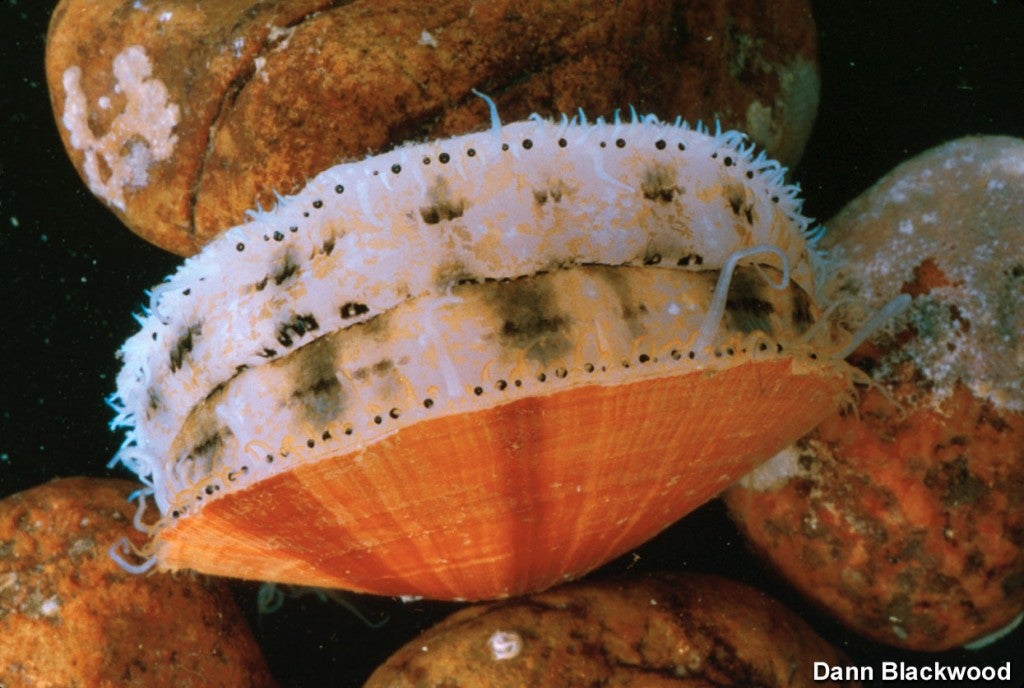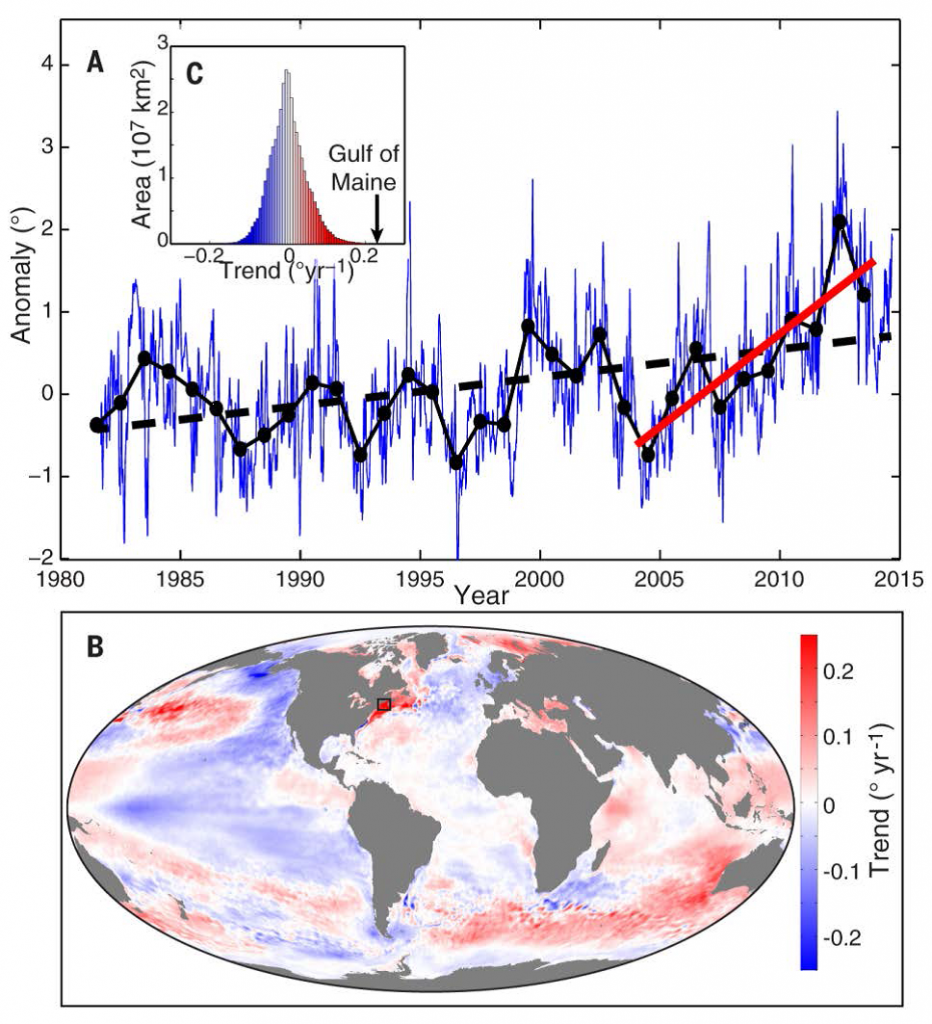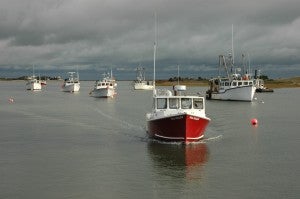
Sea scallop. Photo credit: Dann Blackwood, USGS
By: Kristin M. Kleisner
Last week at the Maine Fishermen’s Forum, a session entitled “Questioning our Changing Oceans,” sponsored by The Maine Coast Fishermen’s Association, The Environmental Defense Fund, The Island Institute, and The Nature Conservancy, sought to address some of the major issues related to climate change that the fishing industry has been experiencing. The panel included Jake Kritzer (EDF) as well as local scientists Andy Pershing (GMRI) and Jon Hare (NOAA), along with headliners Capt. Keith Coburn of the hit show ‘Deadliest Catch’, Capt. Buddy Guindon of the new breakout hit ‘Big Fish, Texas,’ and fishermen from as far as Western Australia.
The panel highlighted two NOAA studies recently published in PLOS ONE that highlight the vulnerability of marine fish and invertebrate species such as American lobster and scallops on the U.S. Northeast Shelf to the effects of climate change. Both studies illuminate important trends in species adaptation that will help inform future management decisions in the region. Read More












